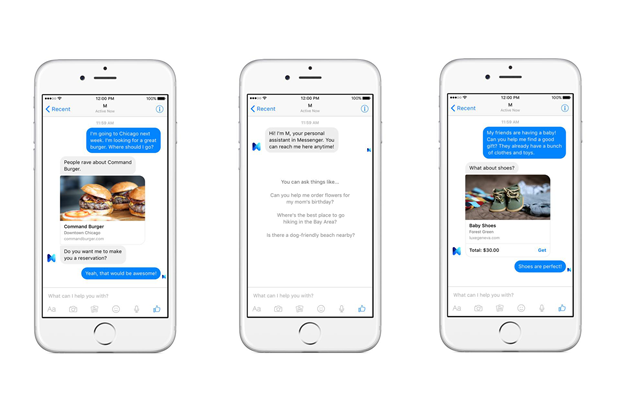For all the hype around technology, it doesn't move as fast as you might expect. When predictions focus on shiny new toys, they tend to miss the messy reality of human behaviour. (Which is why futurists in the 1960s foresaw the fax machine but completely failed to anticipate the arrival of women in the workplace.) So while it's tempting to declare that 2016 will be the year of virtual reality, here are four tech trends that instead focus on what people actually do with their technology, once they've got it in their hands.
THE END OF GOOGLE
Not Google the company, but Google the search engine. This is a trend driven by smartphones, the key technology of the 2010s. In every part of the world, smartphone use keeps on going up and up, and there's no reason to expect that to stop in 2016.
You'd think this would be good news for a service like Google. But people don't search – i.e. use Google (China excepted) – on smartphones in the same way they do on desktop. They don't search for "Facebook" – they tap the Facebook app. Then once they're in an app they tend to stay there.
Using Google's own data, Guardian tech columnist Charles Arthur found that 50 percent of people do zero searches per day on mobile, compared to only 7 percent on desktop. None of this will necessarily make a huge difference to the revenues of Google – aka Alphabet – but it's indicative of the way mobile is changing our relationship to even the most basic internet services.
MESSAGING FOR EVERYTHING
What do people do with their phones if they're not using Google? They send each other messages. Look at the most used apps: it's Facebook top, followed in third by Facebook Messenger (which has grown 144 percent year-on-year in the US, according to Comscore).
As mobile becomes more and more important, a lot of companies are putting messaging at the heart of their service. In this vision of the future, you'll be able to book a restaurant or order room service simply by sending a message. The person on the other end can give you options and refine exactly what you want, as well as chatting to you in a more human fashion (emoji!). The idea is that you get a more personal communication as well as tapping into the knowledge of the person on the other end.
Startups are trying to turn this into a business. Uber co-founder Garrett Camp's new app Operator connects you to experts to help you with your shopping. Aces does the same thing for tourists, connecting them to local experts in different cities.
These companies are going to have to compete with Facebook Messenger, Mark Zuckerberg's one app to rule them all, which we profiled in the November issue of the magazine. The first sign of this: from Wednesday, Facebook Messenger users in the US can order an Uber inside the app – so if you friend sends you an address, you'll be able to tap that and book a cab directly. Expect to see a lot more of this kind of thing in the year to come.
ARTIFICIAL SOMETHING
From a tech point of view, the big prize in all of this is artificial intelligence. One day, we're told, software will be able to conduct these conversations, going through our data to tell us what we need and messaging us with friendly little reminders that are as good as, if not better, than human interaction.
This is what Facebook is aiming for with M (short for Moneypenny), its personal assistant service, which is based in Facebook Messenger and uses a mix of human and automation. Other similar services include Amazon Echo, a voice recognition-based digital assistant that goes by the name of Alexa, and Amy, an automated assistant that helps you organise meetings over email.

All these projects are based on natural language processing, the attempt to understand language as it is used in everyday life. "If we can crack natural language understanding, then we will open a huge market for AI," says Rand Hindi, CEO of Snips, a French AI company. "Anything from understanding law and contracts, to analysing and writing news or diagnosing patients will be affected. And that does not include the impact of messaging apps which will be able to augment the experience of users by analysing what they are talking about."
Will we see any of this come to life in 2016? Understanding natural language processing is "a super hard task," says Hindi. "Understanding language is not just about syntax and grammar, but also about context. You need to know about the person's life, environment, culture. Quite a complex task!"
In other words, while this might be an extremely exciting area, it's unlikely to make any difference to anyone's lives in the near future. Instead, change will come, as it always does, from the everyday activities of ordinary men and women. Perhaps the technology industry will wake up to this in 2016, although personally I have my doubts. If you notice the one thing those AI assistant services all have in common, they're all named after women. So yeah: tech will still be sexist in 2016. But hey: at least by the end of the year there'll be a female President.
- wired.co.uk